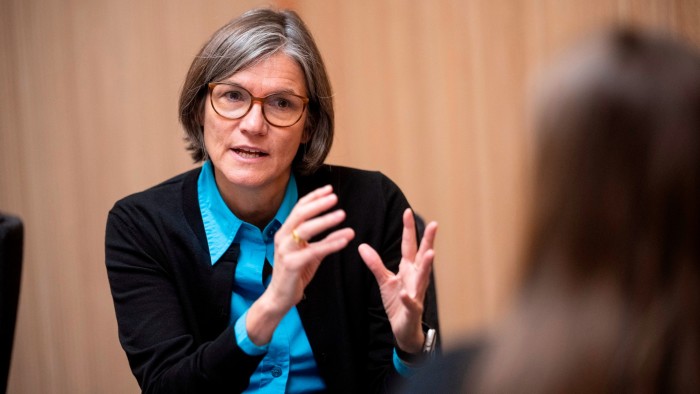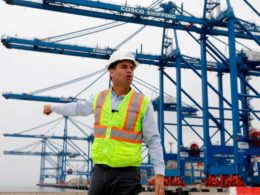Unlock the White House Watch newsletter for free
Your guide to what the 2024 US election means for Washington and the world
The head of Germany’s most powerful trade union has called on Berlin to drop its cap on new borrowing and instead invest in “education, roads and railways” to safeguard the future of Europe’s largest economy.
IG Metall chair Christiane Benner said the country should follow the example of the US and China, which are heavily supporting their domestic industries, meaning the borrowing limit had to “stop — immediately, not after the elections”.
Benner’s warning came as a wave of recently announced industrial job cuts set a grim backdrop to the early stages of election campaigning, following the collapse of Chancellor Olaf Scholz’ three-way coalition amid the country’s economic malaise.
The German debt brake, which bars Berlin from borrowing more than 0.35 per cent of GDP in any fiscal year scuppered planned investments in the country’s green transition last year. It will be a hotly contested topic ahead of elections in February.
The union leader on Monday addressed tens of thousands of striking Volkswagen workers who had walked out for a second time in a month to protest against executives’ plans to close several plants in Germany amid slowing sales.
Europe’s largest carmaker has been hit hard by slowing demand and growing competition in China, its most profitable market, where the market share of its flagship brand has nearly halved in just five years.
The situation is not much better in its home region, where annual sales of new cars have fallen by roughly 2mn a year over the same time period, as consumers have grappled with higher costs of living.
VW workers across all shifts will on Monday walk out for four hours — twice as long as its walkouts last week — as IG Metall and VW executives kick off the fourth round of negotiations over planned cost cuts.
Worker representatives last month offered to forgo €1.5bn in future pay rises if executives at the German company agreed to rein in bonuses, curtail dividends and — most importantly — cancel plans to close factories.
But VW’s lead negotiator Arne Meiswinkel on Monday said the company had concluded that “the counterproposal is not sufficient for a sustainable solution” and that VW “must reduce its excess capacity”.
IG Metall and VW’s labour leader Daniela Cavallo reiterated that workers would expand strike action unless the company agreed to scrap its historic proposal to shut factories during Monday’s negotiation.
Source link









